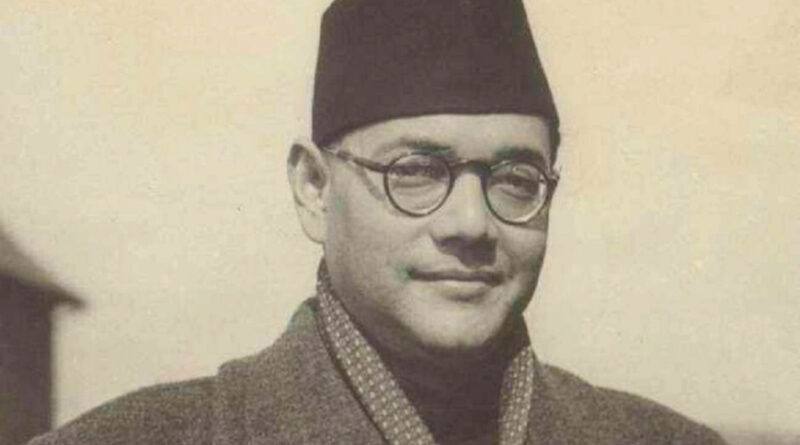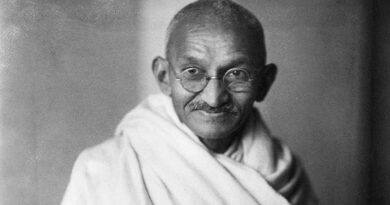Netaji: The Best and Unparalleled Leader Independent India Never Had
Subhas Chandra Bose, popularly known as Netaji, was a revolutionary leader who played a significant role in India’s independence struggle. Born in Cuttack, Odisha, in 1897, Bose was a brilliant student and lawyer who later became a member of the Bengal Legislative Council. He was expelled from Presidency College, Calcutta, in 1916 for nationalist activities, including beating and thrashing one of his British teachers.
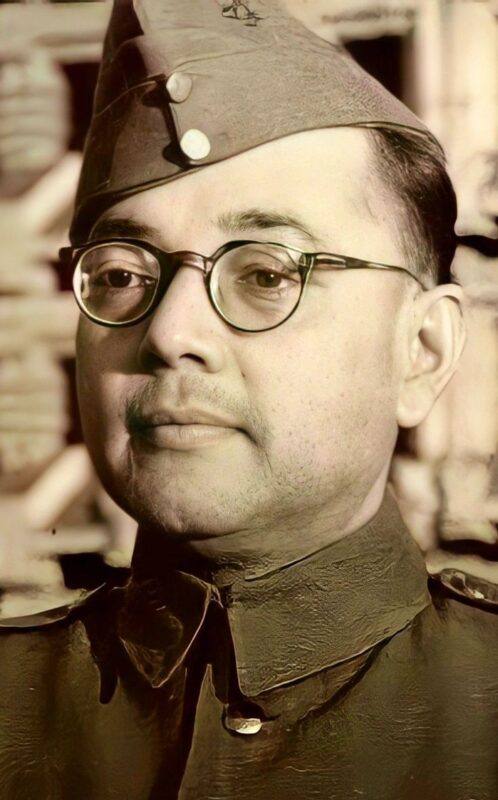
Bose returned to India in 1921 to join the Indian National Congress and joined the Non-Cooperation Movement, which led to the formation of the Indian National Congress (INC). He was advised by Mahatma Gandhi to work with Chittaranjan Das, who became his political guru. Bose played a major role in enlightening the students, youth, and labourers of Calcutta who were eagerly waiting to see India as an independent, federal, and republican nation.
After returning to India, Bose joined the Indian National Congress and became a youth educator and commandant of the Bengal Congress volunteers. He started the newspaper ‘Swaraj’ and became the CEO of the Calcutta Municipal Corporation in 1924. Bose was sent to prison in Mandalay for nationalist activities in 1925 but was released in 1927 and elected President of the All India Youth Congress and Secretary of the Bengal State Congress. In 1930, he became the mayor of Calcutta.
Netaji’s book, The Indian Struggle, covers the Indian independence movement from 1920 to 1942, but it was banned by the British government. His vision for a socially inclusive India, advocating against caste discrimination and promoting women’s empowerment, remains relevant in today’s India.
Despite the controversy surrounding Bose’s death and political decisions during WWII, his message of religious tolerance, socialism, and independence from outside influences rings true in contemporary India. His revolutionary approach to the liberation movement and his changing view of economic development have lasting resonance in contemporary India.
In 1938, Subhas Chandra Bose was elected president of the Indian National Congress and formed a national planning committee that formulated a policy of broad industrialisation. However, this did not align with Gandhian economic thought, which emphasised cottage industries and benefiting from the use of the country’s own resources. Bose’s vindication came in 1939 when he defeated a Gandhian rival for re-election and opposed India’s joining the Second World War as an ally of the British. He believed in all-round freedom, i.e., freedom for the individual, society, rich, poor, men, women, and all individuals and classes.
Bose’s ideology tilted towards socialism and leftist authoritarianism, and he formed the All India Forward Bloc in 1939 as a faction within the Congress. The prime objective of the Forward Bloc was to spread the meaning of complete independence of India with adherence to principles of equality and social justice. Despite sharp political differences between Subhas and Gandhi, Bose had deep respect for them. In August 1942, when Mahatma Gandhi launched the Quit India movement, Subhas Chandra Bose was in Berlin and called the Quit India Movement of Mahatma Gandhi the “non-violent guerilla warfare.”
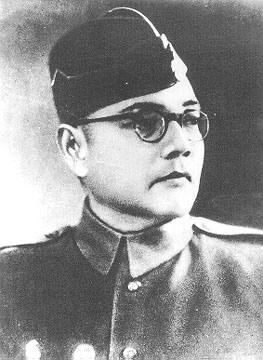
An important development in the struggle for freedom during the Second World War was the formation and activities of the Azad Hind Fauj, also known as the Indian National Army (INA). Rash Behari Bose, an Indian revolutionary who had escaped from India and been living in Japan for many years, set up the Indian Independence League with the support of Indians living in Southeast Asia.
Subhas Chandra Bose played a crucial role in the country’s independence struggle against the British. He was held under house arrest by the British due to his opposition to their rule. However, he left the country secretly in 1941 and travelled by foot, car, and train to Kabul (now Afghanistan), where he disappeared once again. His broadcast from German radio sent shock waves among the British, electrifying the Indian masses who realised that their leader was working on a master plan to free their motherland.
In 1943, Bose visited Japan, where the royal administration agreed to his appeal for help. He rebuilt the Indian National Army (Azad Hind Fauj) to make it an effective instrument for the freedom of India. In October 1943, he formed a provisional government, one that had been recognised by the Axis Powers during the Second World War. In December 1943, the INA freed the Andaman and Nicobar Islands from the British, and they were renamed Swaraj and Shaheed Islands.
Subhas Chandra Bose was a great adventurer, with his military exploits, unmatched patriotism, and exemplary bravery making him a role model for the young men and women of India. Parakram Diwas, celebrated on January 23, honours the birth anniversary of Netaji Subhas Chandra Bose, a national observance in India paying tribute to his enduring legacy and contributions to the nation’s freedom struggle.
Subhas Chandra Bose was deeply influenced by the Bengal Renaissance and the nationalist movements of his time. His vision for India’s independence was not just about negotiation but also a call for complete autonomy, or Purna Swaraj. This conviction led him to establish his own faction within the Congress, championing the idea that the struggle for freedom could involve the use of force.
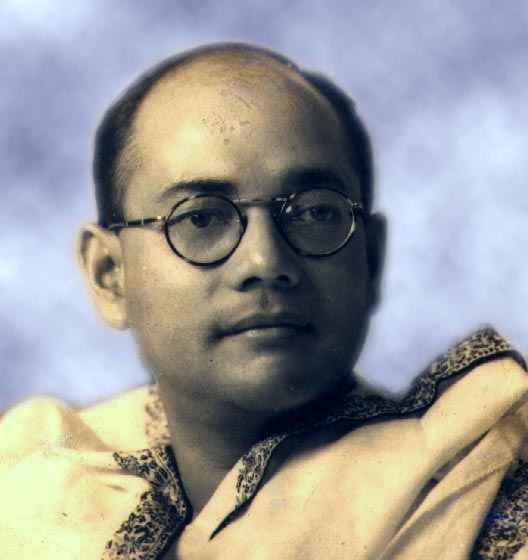
In 1938, Bose ascended to the presidency of the Indian National Congress, but the following year, ideological rifts with Gandhi and the Congress leadership prompted his unexpected resignation. He held the conviction that the Congress was falling short in its efforts to advocate for India’s liberation. The Azad Hind Movement, led by Bose, stands as a testament to his fervent aspirations, envisioning a liberated India achieved through the resolute path of armed struggle.
Subhas Chandra Bose and the Indian National Army (INA) stand as pivotal figures in the narrative of India’s quest for independence. Bose, a charismatic leader, rallied support for the INA, which aimed to liberate India from colonial rule. His vision culminated in the formation of the Indian National Army (INA), a coalition of Indian prisoners of war and expatriates united under a common cause.
The INA emerged as a pivotal force during the war, aligning with Japanese troops in their campaign against British colonial rule in both India and Southeast Asia. While the INA did not achieve its goal of liberating India, its endeavours were instrumental in instilling a fervent sense of nationalism and fostering military resistance to British colonial rule.
Netaji’s iconic slogan, “Give me blood, and I will give you freedom,” served as a powerful rallying cry, igniting the passion of countless individuals eager to join the fight for independence. In 1939, Subhas Chandra Bose established the Forward Bloc, a left-wing political group within the broader spectrum of the Congress party, marking a pivotal moment in India’s political landscape.
Bose’s vision and determination continue to inspire generations, marking a significant chapter in the quest for freedom in India.
Subhas Chandra Bose, a prominent figure in India’s struggle for independence, was a key figure in the movement. Despite facing initial challenges in garnering broad support, Bose’s Forward Bloc emerged as a significant platform for him, enabling him to rally the masses and advocate for a more assertive approach to resisting British colonial domination. The organisation placed significant emphasis on the concerns of the working class, which Bose deemed essential for fostering a robust national movement.
Bose’s unique ideological identity set it apart from the dominant Congress party, envisioning a dynamic future for India characterised by robust central governance, a push towards industrialisation, and a bold foreign policy stance. This perspective stood in stark contrast to the more moderate approaches championed by influential figures such as Gandhi and Nehru.
Unexpectedly, British authorities placed Bose under house arrest, but his indomitable spirit led him to escape India in 1941, embarking on a daring journey to Germany and Japan. His mission was to rally support for India’s long-awaited independence. Bose forged connections with the Axis Powers, establishing relationships with high-ranking Nazi officials in Germany, including Adolf Hitler himself. In Japan, he successfully garnered military backing for his ambitious dream of an independent India.
In Japan, Bose led the Indian National Army (INA), which engaged in combat with British forces in Burma and portions of India. In a bold move, he established the Azad Hind Fauj, making a significant declaration of war against Britain and its allies, as well as Japan’s partners in the conflict.
Bose’s ideology has had a significant impact on India post-independence. His steadfast dedication to the cause of independence and his fervent plea for complete sovereignty, known as Purna Swaraj, ignited a passion for liberation that resonated through the hearts of countless Indians, inspiring them to rally for their nation’s autonomy. His military approach, which emphasised self-reliance and strength, stood in stark contrast to Gandhi’s non-violence philosophy, contributing to a multifaceted independence movement.
Bose’s vision for a robust, centrally organised India significantly influenced the political landscape following independence. His ideas on defence, security, and industrialisation have left an indelible mark on the nation-building process and India’s development trajectory. Radical and left-wing political leaders, particularly in West Bengal, were influenced by Bose’s philosophy of strong government and national unity, shaping their strategy for resolving regional conflicts and bolstering India’s democracy.
The mystery surrounding Bose’s disappearance following World War II continues to be a topic of discussion, with some believing he may have evaded fate and continued to champion India’s cause from the shadows. His life serves as a powerful testament to resilience and unwavering determination, driving the pursuit of a brighter future for India.
Subhas Chandra Bose’s Leadership and Relevance in Modern India
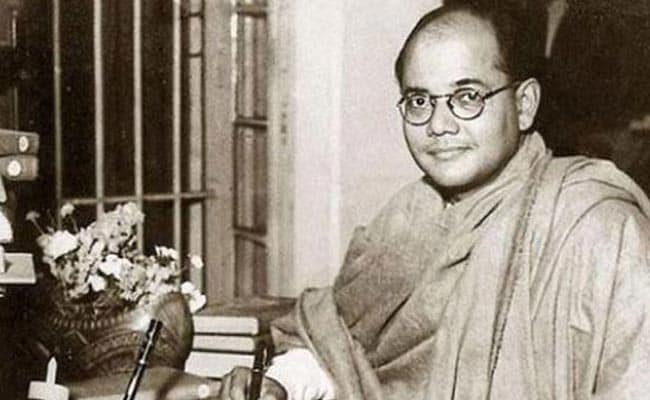
Active Resistance:
• Advocated for direct confrontation with the British, forming the Indian National Army (INA).
• Established the “Azad Hind Government” in exile and led the INA, a group of Indian soldiers captured by the Japanese during World War II.
Charismatic Leadership:
• His fiery speeches and strong belief in complete independence motivated many Indians to join the freedom struggle.
Symbol of Defiance:
• His escape from India under British surveillance and alliance with Axis powers during World War II solidified his image as a daring leader.
Debate on Bose’s Legacy:
• Some argue his strategy of seeking support from Axis powers during World War II was controversial.
• Despite not directly leading India to independence, his actions are considered a vital part of the struggle against British rule.
Relevance in Modern India:
• His vision for a socially inclusive India, advocating against caste discrimination and promoting women’s empowerment, remains relevant in today’s India.
• Discussions on his political choices during World War II and the mystery surrounding his death fuel interest in his life story.
Promoting National Resilience:
The life of Bose, characterised by sacrifices and challenges, serves as a powerful testament to resilience and unwavering determination. His unwavering determination amidst challenges stands as an inspiring beacon for those engaged in the arduous journey of nation-building, driving the pursuit of a brighter future for India.
India has been profoundly impacted by Subhas Chandra Bose since independence. His contributions go beyond simple political manoeuvres; they capture the essence of resistance, freedom, and sacrifice. Bose’s ideology remains a powerful force in shaping India’s national identity, influencing political thought and the moral fabric of the nation’s quest for justice.
His legacy endures as a significant chapter in Indian history. The call for complete independence, the leadership of the Indian National Army, and the relentless efforts to strengthen India’s sovereignty resonate deeply within political discourse. These elements are not only pivotal to understanding the nation’s historical narrative but also play a crucial role in shaping its modern identity.


